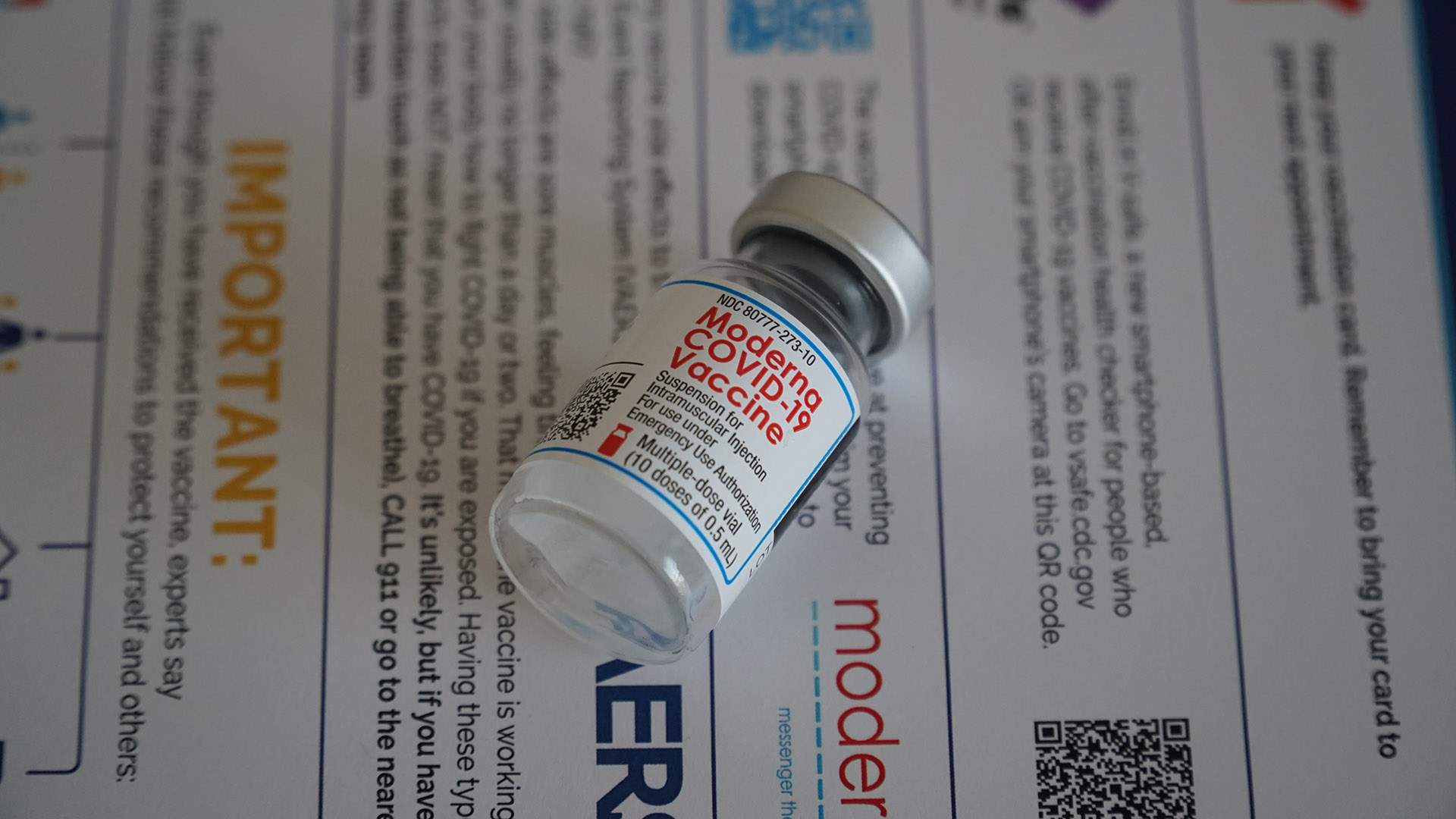The Moderna COVID-19 Vaccine Has Just Been Approved for Use in Australia
Ten million doses will join Australia's vaccine rollout in 2021, joining the AstraZeneca and Pfizer jabs.
Since the first jabs started being put in arms around Australia at the beginning of 2021, two words have monopolised the discussion about the country's COVID-19 vaccine rollout: AstraZeneca and Pfizer. They're two of the companies with jabs approved for use in Australia so far, and it's their shots that folks who've been vaxxed to-date have been receiving. But from September, a third company's vaccine will be available to everyone rolling up their sleeves.
On Monday, August 9, Australia's Therapeutic Goods Administration gave the Moderna COVID-19 vaccine approval to be used in Australia. As announced in a press conference by Prime Minster Scott Morrison, the TGA "has given provisional approval for the use of Moderna for Australians aged 18 and over."
In its own statement explaining its decision, the TGA advised that "the Moderna COVID-19 vaccine has shown strong efficacy preventing symptomatic COVID-19 and severe COVID-19 in clinical trials."
Elsewhere around the world, the vaccine has also received approval or authorisation to use in emergency situations in countries such as United Kingdom, Canada, the European Union, the United States, Switzerland and Singapore.
The Therapeutic Goods Administration (@TGAgovau) has provisionally approved Moderna's COVID-19 vaccine for use in Australia.https://t.co/Yr7dj0G0ja pic.twitter.com/Kp0EMpck7V
— Australian Government (@ausgov) August 9, 2021
Partly funded by a donation from the one and only Dolly Parton, Moderna's vaccine is actually the fourth to get the nod in Australia, following AstraZeneca, Pfizer and a jab from Johnson & Johnson — the latter of which hasn't been included in the country's vaccine rollout so far. Like the Pfizer vaccine, the Moderna jab is an mRNA-based vaccine. So, it uses a synthetic genetic code called RNA, which tells the cells in our bodies how to make the coronavirus' unique spike protein. Then, once our bodies have done just that, making the protein that's encoded by the mRNA vaccine, we're able to recognise the spike protein as being foreign to our system and launch an immune response against it.
Two doses of the Moderna vaccine are required — and while the AstraZeneca jabs are recommended four–12 weeks apart, and the Pfizer jabs three weeks apart, Moderna's should be administered within 28 days of each other.
Wondering what that the Moderna approval means in terms of boosting Australia's vaccine ability (because actually getting a jab isn't particularly straightforward as part of the country's slow-moving rollout)? The Prime Minister advised that Australia will be adding 25 million doses of Moderna to the 125 million doses of Pfizer and 53 million doses of AstraZeneca that are already part of the vaccine campaign. "We will have ten million of the Moderna doses arriving before the end of this year. The first one million doses is on track to arrive next month and will go to pharmacies. Then we will have three million in October, three million in November and three million in December," he said.
With the addition of the Moderna vaccine, the Prime Minister also noted that he expected that 70-percent of eligible Australians would be fully vaccinated by the end of 2021 — the threshold at which the second phase of National Cabinet's National Plan to transition Australia's National COVID Response is set to kick in. At that stage, which applies both when Australia reaches that figure and each state and territory does as well, restrictions will be eased on folks who've had the jab, including around lockdowns and border controls. Lockdowns are expected to be less likely, low-level restrictions will still help minimise the spread of cases and assist contact tracing, inbound passenger caps for unvaxxed returning Aussies will be restored to previous levels and more vaccinated returning Aussies will be allowed to come home.
For more information about the Therapeutic Goods Administration's approval of the Moderna COVID-19 vaccine, head to the TGA website.





